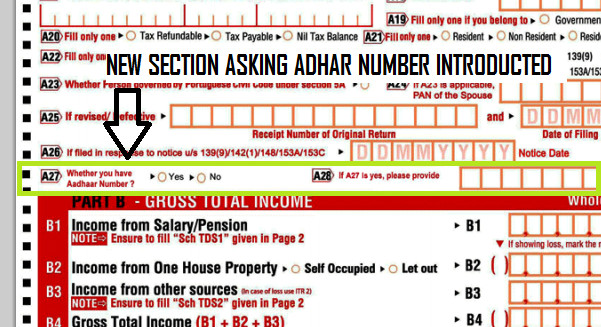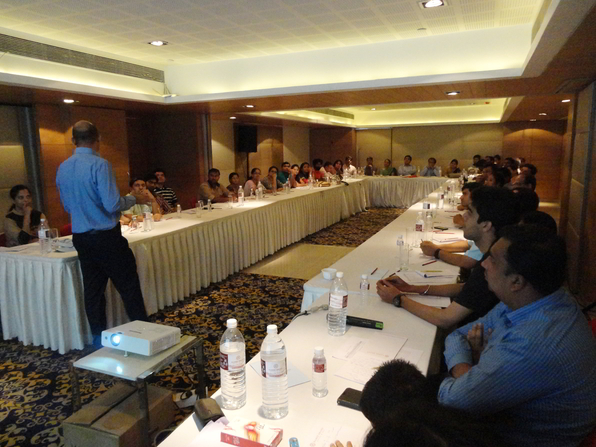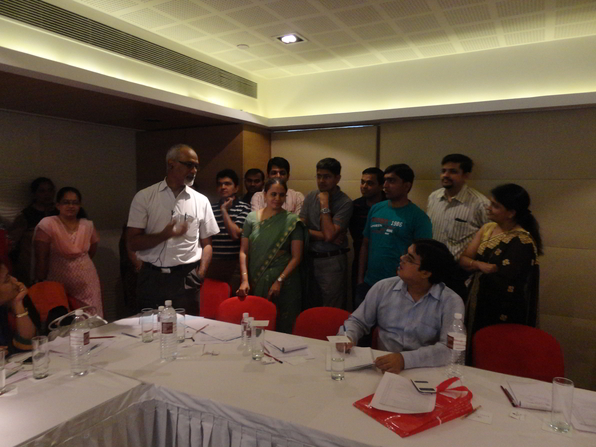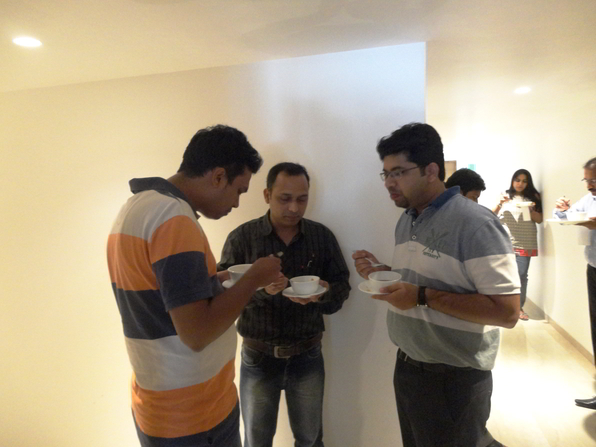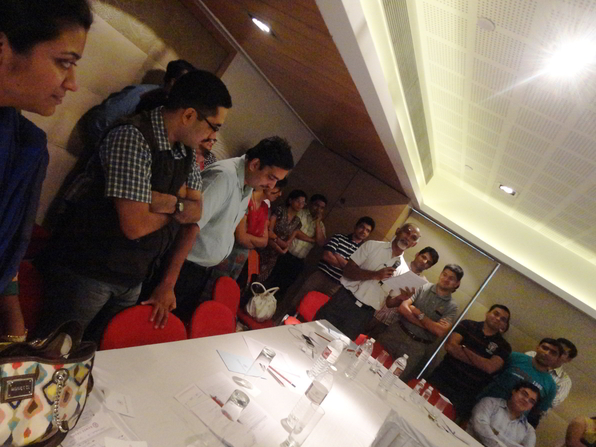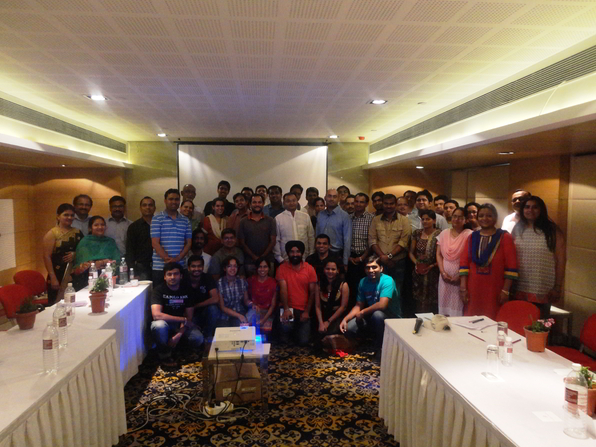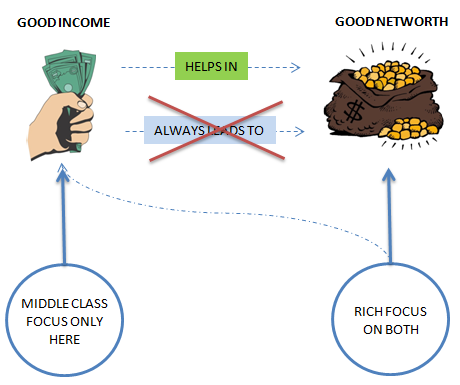Paying Income tax is one thing, which most of the people do not like. Everyone tries to minimize their income tax by some or the other means. So today, I will be sharing with you the list of some income’s which are 100% tax-free in India.
Yes, you heard it right. If you earn these income’s, then you do not pay any income tax on them at all. This article is mainly for information purpose because I have seen many investors who are yet not clear on the taxation rules of a few incomes. Here we go:

1. Interest on saving bank interest – up to Rs 10,000 a year
From 2013 onwards, a new section 80 TTA is introduced under which, the interest on your saving bank account up to Rs 10,000 is not taxable. So if your saving bank interest for a year is Rs 20,000, then out of that Rs 10,000 is exempted and only the rest Rs 10,000 will be added to your taxable income.
This is a great relief for tax-payers because it was really a big headache to find out the saving bank interest from all the accounts and add them up and pay income tax because, for most of the people, it would be few hundreds or thousands of interest income. Now that is gone!
2. Interest earned in NRE account
Any interest you earn on your NRE (Non-Resident Exempt) account is 100% Tax-free in India. Here we are talking about both, the Fixed Deposit and normal saving bank interest. Both of them are tax-free for NRI. NRE deposits are a great way to earn a decent interest on the savings done by NRI.
Some of our clients even go an extent of taking a loan from the country they are working in like UAE/Singapore because they get it at 2-3% and then reinvest the same in NRE deposits here in India where they earn around 8-9%. Also because there is no tax, hence TDS is also not applicable to the NRE account deposits.
And the best part is that the money in NRE accounts is repatriable which means if you are in the US and you invest some money in India in your NRE account, the principle and interest money can be taken back to the US.
3. The share of Profits paid to partners in the firm
If a partnership firm earns some profit and instead of retaining it within the partnership firm, it has paid to the partners as a share of profits, then it is tax-free in the hands of the partner, because the tax is already paid by the firm on it.
Example – If A and B are partners in a firm. They get 5 lacs each in a year as a share in the profits earned by the firm, then it will be tax-free in their hands. But if they are receiving any salary from the firm, then its taxed in their hands.
I would like to request that as this is related to corporate tax, please consult a qualified CA on this issue.
4. Maturity or Claim amount received by Life Insurance Company
The money you get from life insurance companies on maturity, claim or surrender is 100% tax-free provided, If the premium paid does not exceed 20% of the sum assured. I am quoting new amendments which have come in recent years.
As per amendments introduced in the Finance Act, 2003, (i.e., with effect from April 1, 2003), any proceeds received on account of maturity/surrender of an insurance policy were exempt from tax only if the premium paid did not exceed 20% of the sum assured.
As an example, if the annual premium is Rs 10,000, to qualify for exemption, the minimum sum assured under the policy was required to be Rs 50,000.
If the sum assured was less than the said value, the entire maturity proceeds would be taxable. Such limit of 20% was later reduced to 10% by the Finance Act, 2012, (i.e., with effect from April 1, 2012) to increase the insurance coverage amount, i.e., the sum assured threshold was increased from a minimum of five times of annual premium to 10 times.
For policies taken on the life of a disabled person or person suffering from certain ailments, the limit was relaxed to 15% of the sum assured with effect from April 1, 2013.
5. LTA money received from Employer
Most of the companies pay LTA (Leave Travel Allowance) each year to their employees, which can be utilized for traveling purpose. This LTA is not taxable in hands of the investor provided they provide the proof of travel. So if your company is not paying you any LTA, ask them to restructure your salary and label some part as LTA, because almost everyone spends a minimum amount traveling in a year.
For example, if you are getting a salary of Rs 5 lacs and their is no LTA in your salary component, you can ask your employer to label 20k as LTA and rest 4.8 lacs as other components, this way you will be able to save tax on that 20k part at least.
6. Money got under VRS scheme up to Rs 5 Lacs
If a person takes VRS (Voluntary retirement scheme) then any amount received up to Rs 5 lacs is income tax-free. However, not everyone is eligible for it. Only employees of Public sector companies or an authority established under a Central or State govt is eligible for this.
7. Money received from your EPF account after 5 yrs
The money one gets from their EPF account is also tax-free, provided the money is taken out after 5 yrs of service. A lot of times investors change their jobs in 3-4 yrs and withdraw their EPF money only to realize that they could have timed their withdraw in a better manner and save 30% of their EPF money which went into income tax (assuming they are in 30% tax bracket).
8. Profits from shares or equity mutual funds after a year
When you earn any profits from your shares or equity mutual funds after holding it for minimum 1 yrs, it is called Long-term Capital gains, and it is 100% tax exempted as per current tax rules.
For example, if you invest Rs 1 lac in shares and after 2 yrs its worth is now Rs 2 Lacs. In this case, when you sell your shares, you will not be paying any income tax on this Rs 1 lac profit because of long-term capital gains rules.
However, it’s important to know that exemption is allowed only when Security Transaction Tax (STT) has been paid (which is paid by you when you buy on a recognized stock exchange such as BSE or NSE). But if you do an out of exchange sales, then STT might not get paid and hence in future when you sell shares, you will have to pay tax on profits.
Update : Now after budget 2018, the profits from shares or equity will be taxed at a flat rate of 10% above the threshhold limit of Rs 1,00,000 in a financial year. Before budget 2018, the profits from equity after an year was 100% tax free.
9. Dividends received from your shares or equity mutual funds
You receive dividends from your stocks or equity mutual funds (dividend option). This dividend money you get is also tax-free in your hand. However, the bad side of the story is that company anyways pays the dividend distribution tax to govt before giving the dividends to its shareholders. Hence, anyways we are getting slightly less share of profits in our hand anyway.
Update : Now after budget 2018, the dividends from equity shares or mutual funds will be taxed at a flat rate of 10% above the threshhold limit of Rs 1,00,000 in a financial year. Before budget 2018, the profits from equity after an year was 100% tax free.
10. Any amount received through WILL or Inheritance
There is no inheritance tax in India now. So anything you get in inheritance through WILL is not taxable in your hands. It becomes your property and now when you invest that money, only the interest part earned on that property will be taxed.
11. Agricultural Income –
Agricultural Income is exempted from tax. However, the income from agriculture (if earned more than Rs 5000 a year) has to be taken into consideration for calculating the tax payable.

12. Gifts received in cash or kind –
If you get anything in cash or in kind for your marriage, that kind of gifts are 100% tax exempt. But if cash received from a relative or a friend exceeds Rs 50000 a year will be taxable. It should not happen that you get some gift after 2 yrs of marriage and you try to justify that it was a gift for your
Example #1 – If one of your friend gifts you Rs 40000 and another one gift you 10000 then there is no need to pay tax because the amount is not exceeding Rs 50,000. Let’s take another example.
Example #2 – If one of your friend gifts you Rs 40,000 and another one gift you 20,000 then the whole 60,000 shall be taxable and the recipient has to pay tax as per his slab rate

13. Scholarships and Cash Awards –
Cash Awards received from central and state government is fully exempted from tax. Any kind of scholarship granted to any deserving student to meet the cost of education is exempted from tax under Section 10(16) of the Income Tax Act of 1961. There is no cap on the maximum limit and the entire sum of money received as a scholarship gets the tax exemption treatment.
Conclusion –
Paying income tax is a moral and legal obligation of every proud citizen of the country. The Indian taxation system is designed in such a way that no unnecessary taxes become a financial burden on the taxpayer. I hope you all are clear about tax-free incomes in India.
Do let us know if we have missed any other important point in this article in the comments section.
